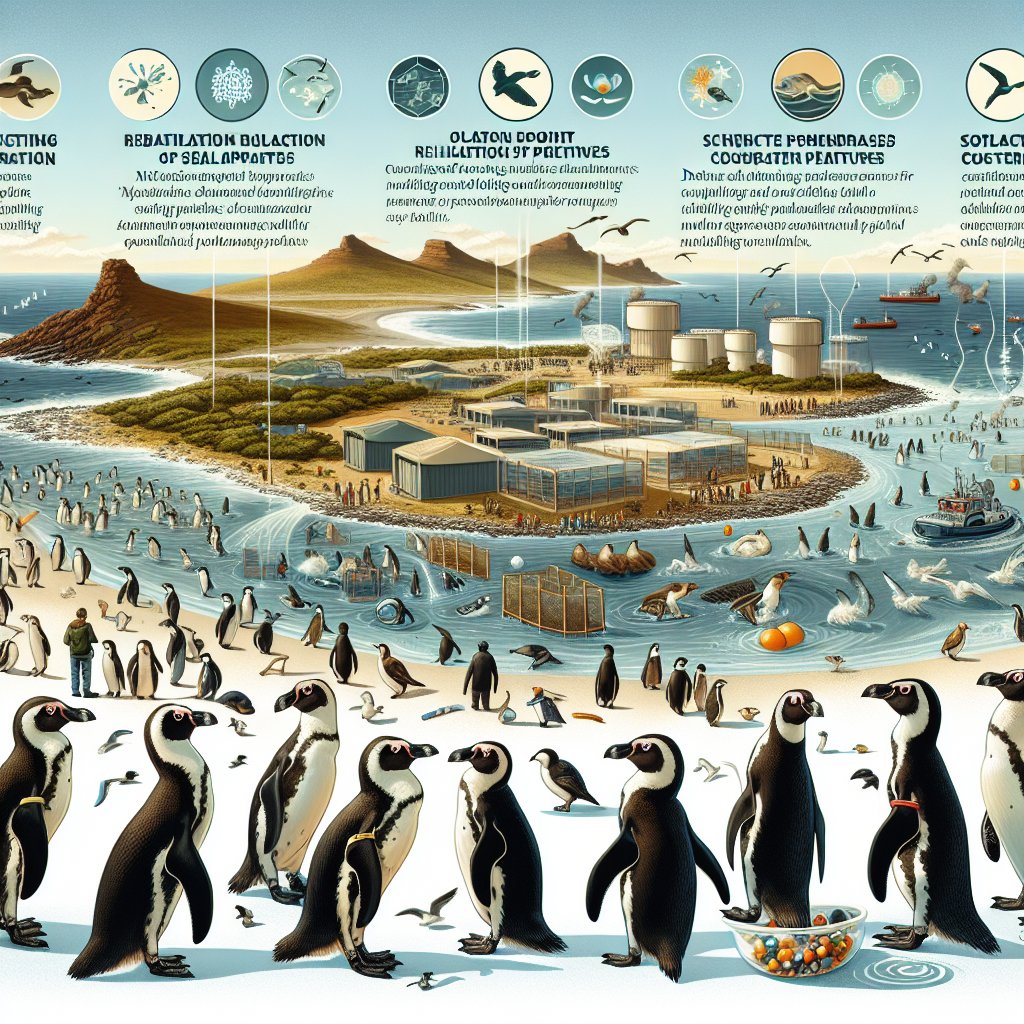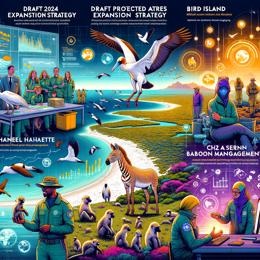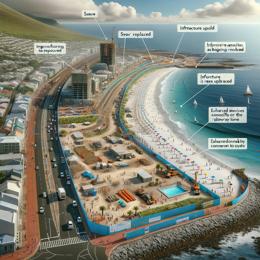Image created by AI
CapeNature and Western Cape Government Join Forces to Save Endangered African Penguins
The Democratic Alliance (DA) in the Western Cape has voiced strong support for the efforts made by CapeNature—the provincial conservation authority—and the Western Cape government in their bid to save the African penguin from the brink of extinction. The African penguin, an iconic species native to the region’s coastlines, has experienced alarming declines in its numbers, with breeding pairs plummeting in recent years.
Dave Bryant, the DA’s Western Cape Spokesperson on Environmental Affairs and Development Planning, commended the significant objectives aimed at preserving the future of the Stony Point, Dassen Island, and Dyer Island African penguin colonies. Bryant’s endorsement of CapeNature’s strategies emerged from a parliamentary reply that he received from the Department of Environmental Affairs and Development Planning.
CapeNature, in alignment with the African Penguin Biodiversity Management Plan, has instituted a robust framework for the management of these seabird populations, striving for sustainable ecosystems and biodiversity conservation. A cornerstone of these initiatives is the collaboration with the Southern African Foundation for the Conservation of Coastal Birds (Sanccob)—a prominent player in seabird rehabilitation—to manage, in particular, situations involving injured or oiled seabirds and rescuing penguin eggs and chicks during adverse weather conditions.
Further dimensions of the plan involve meticulous data collection for ongoing surveillance and monitoring of various indicators, including penguin breeding success rates, predation patterns, and the molting process, which are all vital to understanding and enhancing the colonies’ prospects. The DA also revealed that disaster preparedness is a critical piece of the puzzle, with site-specific countermeasures aimed at minimizing the impact of oil spills and extreme weather conditions such as floods.
Public awareness is another key focal point for conservation efforts, with annual events like "Penguin Palooza" taking place on site to educate and rally community support for these charismatic seabirds. In a progressive move echoing ecological shifts, CapeNature, along with BirdlifeSA and Sanccob, is reviewing the potential for establishing a new, land-based breeding colony at De Hoop Nature Reserve due to the eastward movement of small pelagic fish populations—a primary food source for penguins.
Bryant's statement illuminated the DA's recognition of the paramount importance of the African penguin as a valuable component of the Western Cape's natural heritage. His commentary underscores a collective urgency to employ all feasible measures to steer the species away from extinction and to advocate for diligent stewardship over the colonies in CapeNature’s care.










